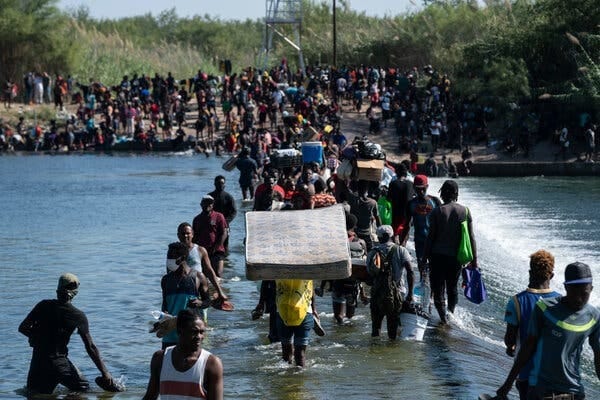
Hi Global Recap readers,
Looks like Trump’s done a complete 180.
The leader who once railed against foreign entanglements now seems ready to dive headfirst into them.
Some say the NATO chief talked him into it.
Others think he’s just ticked off at Putin for ignoring his calls to end the war.
🔴 Then again, maybe it’s not a flip-flop at all. Maybe this is just Trump switching gears within his “peace through strength” framework, after realizing that playing nice with Putin didn’t get him anywhere.
🌐 WORLD
Fast Scroll News

🇺🇸 Trump Urges Russia Strike. During a July 4 call, US President Trump reportedly asked his Ukrainian counterpart Zelenskyy if Kyiv could bomb Moscow and St. Petersburg using US-supplied weapons.
Zelenskyy replied, “Absolutely. We can if you give us the weapons,” and was later handed a list of long-range systems, including Tomahawks, by US officials in Rome.
Trump’s push for deeper strikes follows a “bad” call with Putin and marks a sharp break from his earlier pledges to end foreign entanglements. After the call, Trump went off-script in a live interview, dropping the "F-bomb" and accusing Putin of throwing “a lot of bullshit” at the US.
Oh, and the 2-month ultimatum Trump recently gave to Russia to end the war? Russia just rejected it outright, calling it “a theatrical ultimatum.”

🇦🇺 Albanese Courts China. Australia’s PM Anthony Albanese just met Xi Jinping in Beijing, trying to boost ties with its biggest buyer (a third of Aussie exports go to China) while dodging US pressure over Taiwan.
Behind closed doors, the US wants Australia to clarify if it would back Washington in a Taiwan conflict—but Albanese is dodging direct commitment, saying he supports the “status quo.”
Meanwhile, he brought execs from mining, tourism, and education to emphasize business, even as Chinese warships keep circling Australian waters.
📌 Additional Info: The US has long raised concerns about the port of Darwin, which was leased to a Chinese company for 99 years back in 2015.
• The port sits near key military bases where US Marines conduct annual training exercises, making it a potential security risk.
• Albanese promised during his campaign to force the Chinese owners to sell the port. And many anticipated he would bring it up in today’s meeting, but he never did—prompting widespread criticism over his weak approach.

Ultra-Orthodox Jewish men set fire to conscription notices while blocking a major highway during a protest against being drafted into the Israeli military in Bnei Brak, Israel, on June 5.
🇮🇱 Netanyahu Faces Coalition Crisis. Six lawmakers from United Torah Judaism just quit Israel’s government over a draft exemption fight, threatening Prime Minister Benjamin Netanyahu’s razor-thin Knesset majority.
If Shas, another Orthodox party, walks too, he’s toast—but he’s got two days to fix it before summer recess buys him three months of breathing room.
Meanwhile, "far-right" cabinet members are raging over ceasefire talks with Hamas in Qatar, but Netanyahu may still push through a 60-day ceasefire if hostages start moving—with the cabinet backing.
One aide told Army Radio the PM “will be able to pass it through” once the deal’s ready.

Israeli Air Force’s strike against Syrian forces.
(There are many graphic images and videos circulating online showing Druze being slaughtered and Syrian soldiers forcibly cutting their mustaches, but they were excluded here due to the extreme gore.)
Click for video
🇮🇱 Israel Bombs Syrian Forces. On Tuesday, the IDF launched major airstrikes targeting Syrian tanks and rocket launchers headed toward Sweida, where the local Druze majority has been clashing with Bedouin tribes in ethnic violence that has claimed nearly 100 lives.
Netanyahu says it’s about protecting Syria’s Druze and keeping the border demilitarized, but this was the first direct hit on Damascus’s new Islamist regime, which Israel had been eyeing as a possible ally.
Syrian officials say they’ve brokered a ceasefire with Druze leaders, yet tensions remain high after armed Druze factions refused to disarm and called for “international protection.”
Israeli Diaspora Affairs Minister Chikli demanded the "elimination" of Syrian President al-Sharaa "without delay," labeling him a terrorist and a brutal murderer.
📌 Additional Info: Some Bedouin tribes are believed to be connected to President al-Sharaa's paramilitary group Hay'at Tahrir al-Sham (HTS), the force that overthrew the Assad regime.

🇬🇧 UNITED KINGDOM
Afghan Data Leak Fallout

The UK government’s secret scramble to fix a massive Afghan data leak is finally out in the open, and it’s a mess of apologies, secrecy, and expensive damage control.
Now, the question is: was there a cover-up?
The Leak Nobody Knew

The leak is being touted as “the most expensive email”
Turns out, in February 2022, a British official accidentally leaked personal info for nearly 19,000 Afghans who wanted to escape the Taliban—names, contacts, family details, etc.
The government only realized the leak months later, when some of the info showed up on Facebook.
The breach put thousands at risk, with fears the Taliban or its allies might see the data.
UK Defence Secretary John Healey said the leak was a result of a spreadsheet being emailed "outside of authorized government systems."
Secret Scheme, Secret Gag Order

So what did the UK do? It created a hush-hush resettlement program for those exposed by the leak.
So far, it has moved 4,500 Afghans to the UK, while keeping the whole thing under wraps.
The government slapped a super-injunction on the press, blocking any mention of the leak, the scheme, or even the injunction itself.
📌 Super-injunction: a legal order that not only prohibits the media from publishing specific information, but also bans reporting that the injunction itself has been granted.
The secrecy lasted until a High Court judge finally lifted the gag order, calling it a “scrutiny vacuum” and a threat to accountability.
Who’s at Risk, Who’s Safe

After the leak, there was panic about who might be in danger, but later reviews said the risk was “highly unlikely” to have led to direct targeting.
The leaked list included soldiers, officials, and MPs; some 600 Afghan soldiers and 1,800 family members are still stuck in Afghanistan.
The Ministry of Defence won’t say if anyone was killed or arrested because of the leak.
Cost, Apologies, and Fallout
This secret operation has already cost £400 million and could rack up another £450 million before it’s done. Estimates of total cost range from £2-7 billion.
Defense Secretary John Healey and Conservative leader Kemi Badenoch both issued public apologies, admitting it was a “serious departmental error” and a “terrible mistake.”
The government is now shutting down the scheme but says it will honor promises to those still in Afghanistan.
Closing:
Accountability and Aftermath

Many are criticizing the UK government for the leak that put Afghan lives in danger, but isn’t the real controversy also about the fact that the government is flying thousands of foreigners into the country to cover for its mistake?
Immigration and border policy is a major point of contention in 2025. The days of unconditional tolerance for immigration are long gone, whether one likes it or not.
Yet most mainstream media outlets focus on the human rights angle for the Afghans, not on UK citizens or the national security implications.
As previously mentioned, 600 Afghan soldiers are awaiting transfer.
While that number is small compared to the UK population, relocating them to a concentrated area makes it a significant buildup of foreign military assets in one place.
Normally, the dispersal of such individuals takes place as part of the government's long-term resettlement phase within its integration plan, but this process can take more than two years.
That said, if you watch the apology video above, Healey mentions that some people were turned away because they didn’t qualify for the Afghanistan Response Route (ARR)—so yes, there was some vetting.
Still, it’s hard to ignore how most of the coverage is skimming past the growing backlash against migration. More and more people feel that after years of trying to make it work, the idea that migrants would seamlessly integrate (rather than impose their own culture over the local one) just hasn’t panned out.

